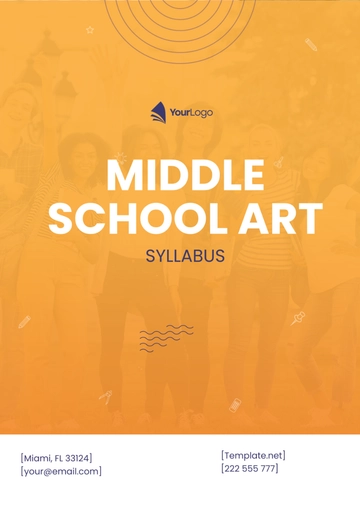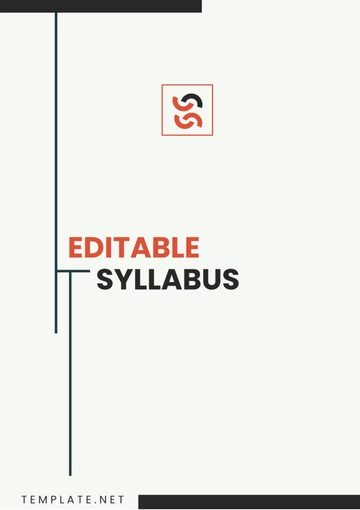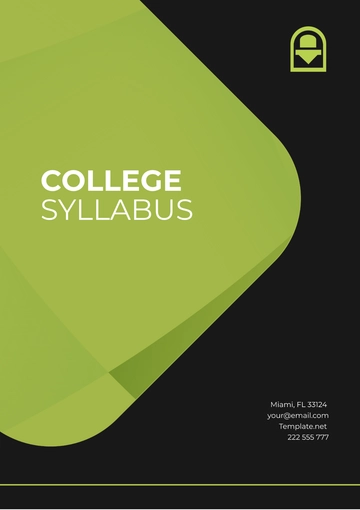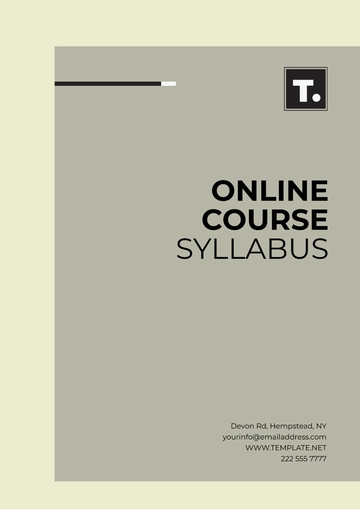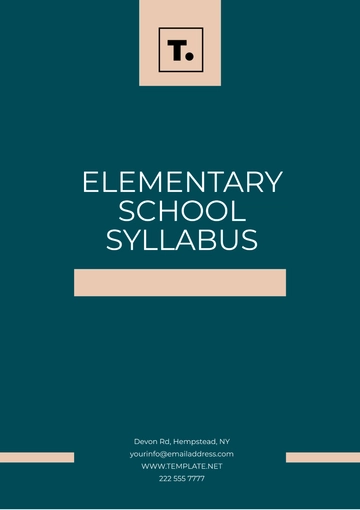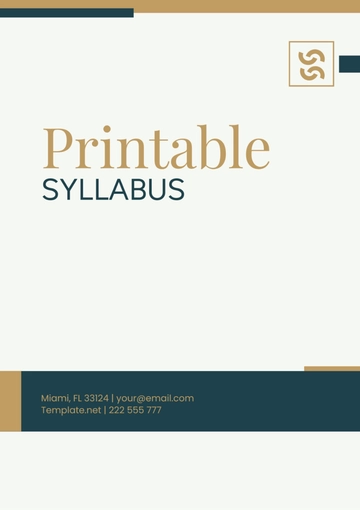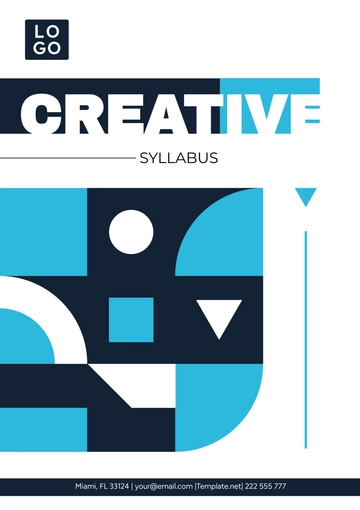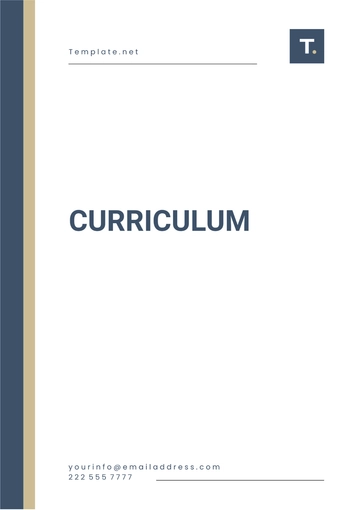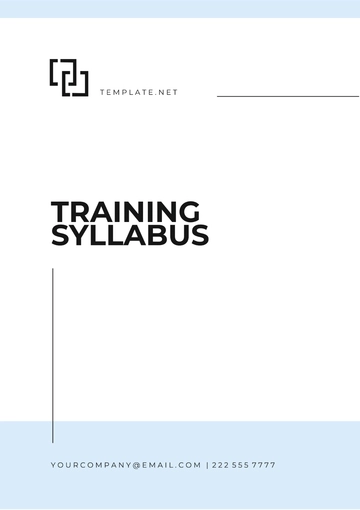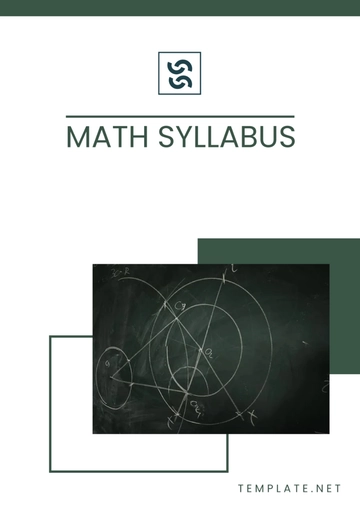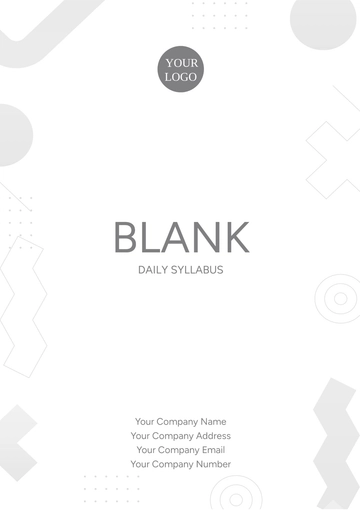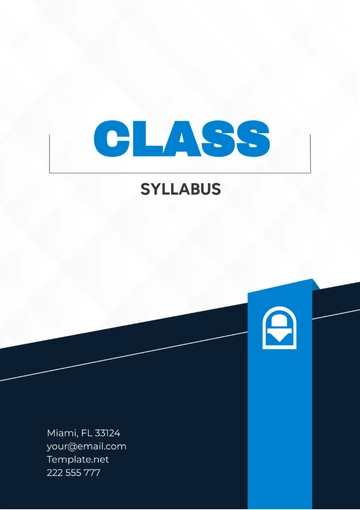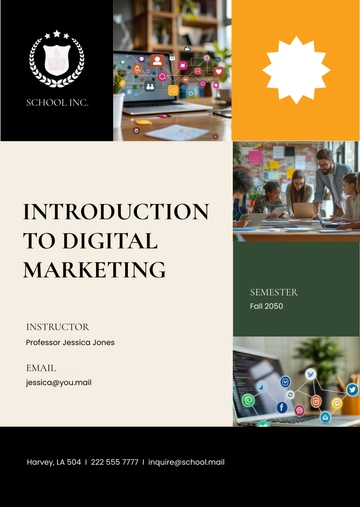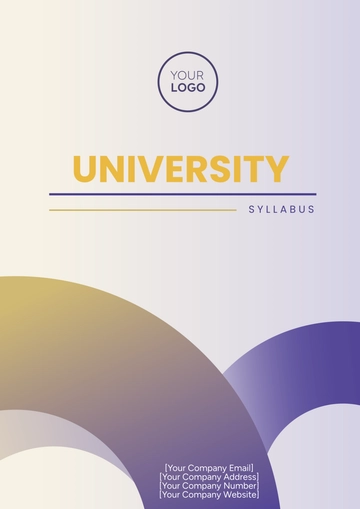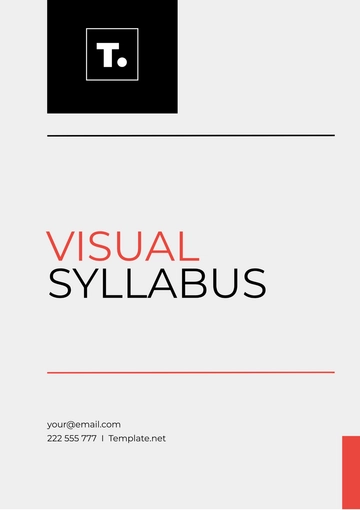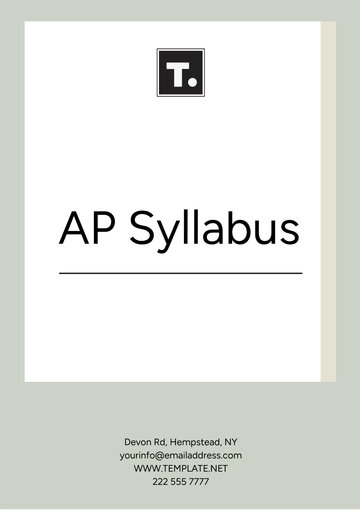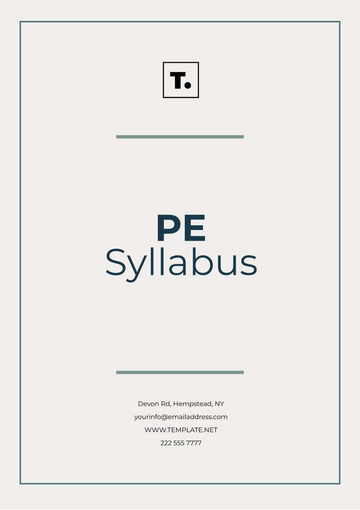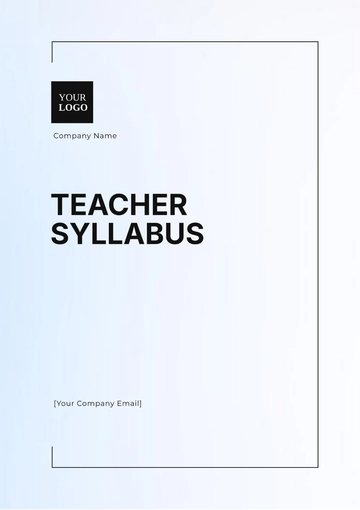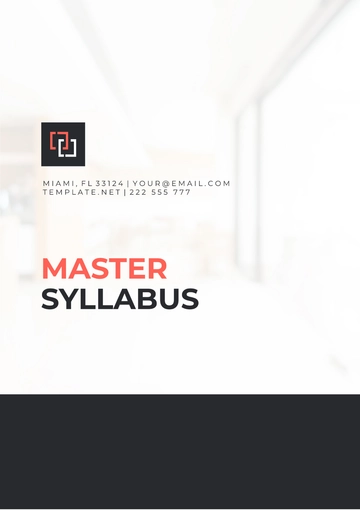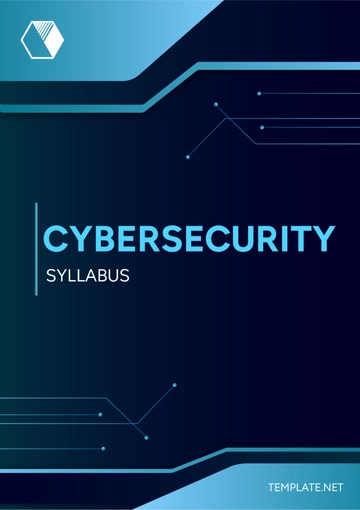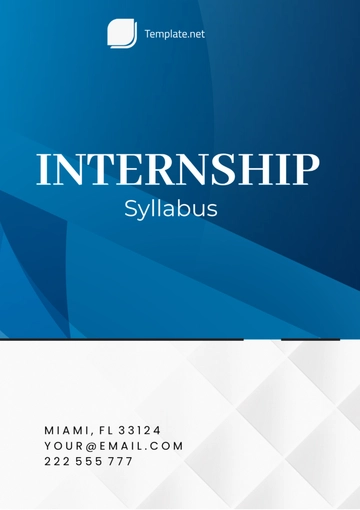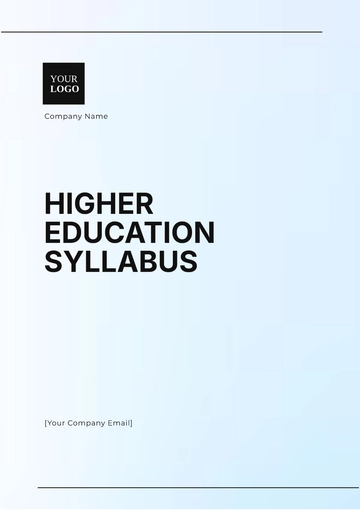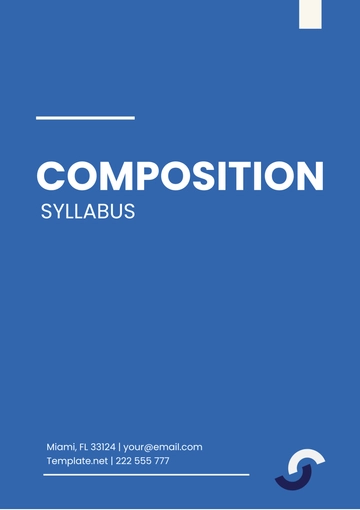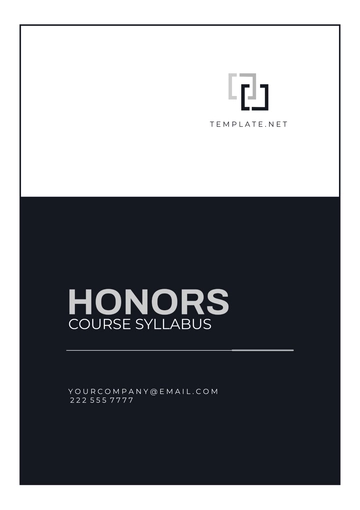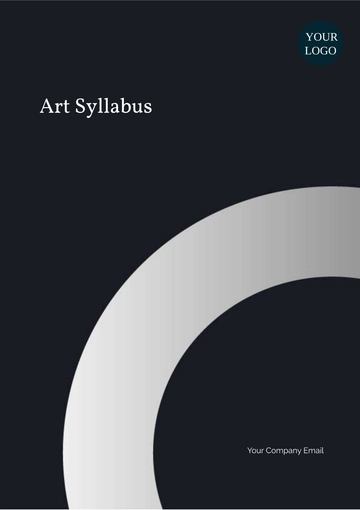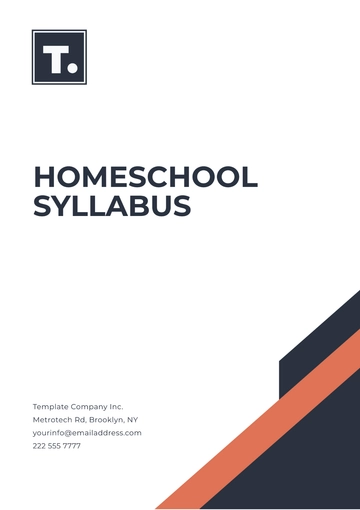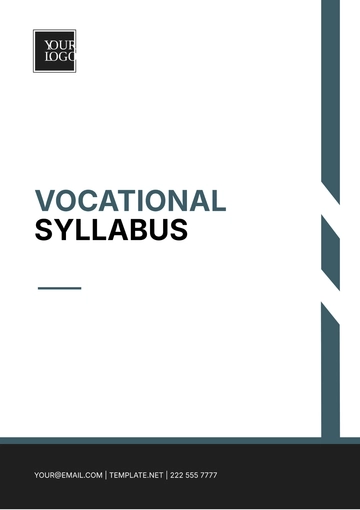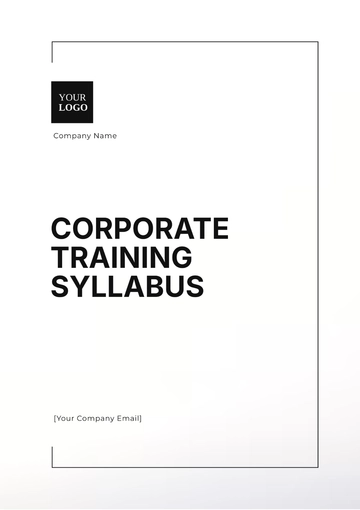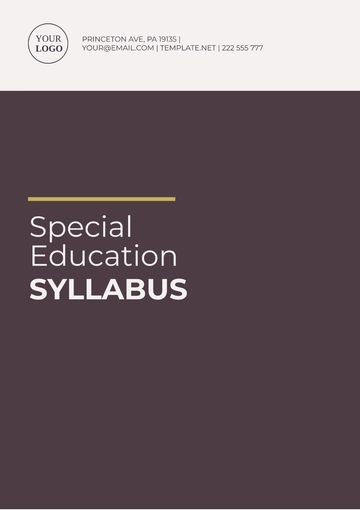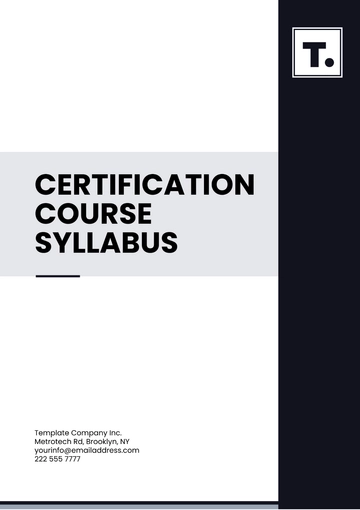Free Independent Study Syllabus
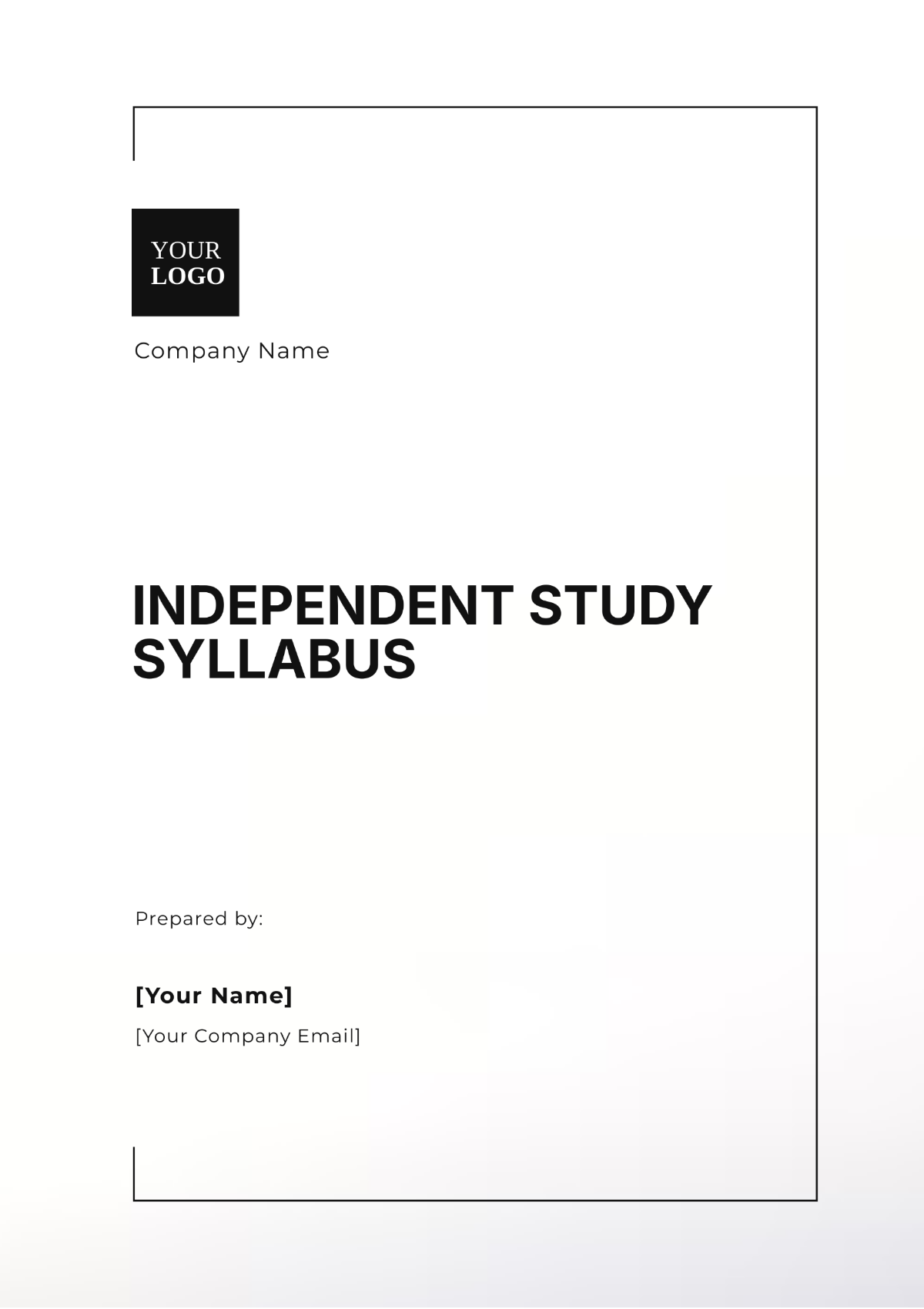
INDEPENDENT STUDY COURSE
Course Title | [COURSE TITLE] |
Course Code | [COURSE CODE] |
Institution Hours | [INSTITUTION HOURS] |
Class Location | [CLASS LOCATION] |
Class Time | [CLASS TIME] |
Class Duration | [DATE] - [DATE] |
1. Course Description
This course is designed for students undertaking independent study projects. It is aimed to provide structure and guidance in self-directed academic pursuits, allowing the learners to explore in-depth the subjects or issues they are passionate about, while developing self-learning and research skills.
2. Instructor Information
Instructor: [YOUR NAME]
Email: [YOUR EMAIL]
3. Learning Objectives
Develop a comprehensive understanding of self-directed study and its benefits.
Acquire practical knowledge on effectively researching and citing resources.
Develop a thorough and sophisticated research question, and work toward answering it.
Craft a research or project proposal, outlining the aim, methodology, and significance of your independent project.
Learn to present and defend your research outcomes.
4. Course Schedule
Week | Topic | Activities |
|---|---|---|
1 | Introduction to self-directed study | Discussion |
2 | Research Methodology | Lecture and Practice |
3 | Development of Research/Project Proposal | Individual Consultations and Drafting Proposal |
4 | Research/Project Implementation | Independent Work |
5 | Progress Report | Submission and Review |
6 | Midterm Check-in | Evaluation and Feedback |
7 | Finalizing Research Outcomes | Revision and Preparation for Presentation |
8 | Presentation of Outcomes | Final Presentation |
5. Required Reading and Materials
Independent Study in Higher Education: A Guide to Practices - (Allan, Eatough, and Simpson)
The Craft of Research - (Booth, Colomb, and Williams)
How to Read a Book - (Adler and Van Doren)
A Manual for Writers of Research Papers, Theses, and Dissertations - (Turabian)
Online resources and databases as relevant to each student's specific project.
6. Assignments and Assessments
Class Participation: Active and thoughtful participation in all class activities.
Proposal Submission: Submission of comprehensive and feasible research or project proposal.
Progress Report: Periodically submitting progress report for tracking and evaluating task completion.
Final Report: Submission of a complete, well-written report of your research findings.
Presentation: Successful preparation and presentation of your research outcomes.
7. Course Policy
Attendance: Although primarily self-directed, regular check-in meetings are required for evaluations and guidance.
Email: Please allow 24-48 hours for email responses during working days.
Respect: Respect for other's ideas and contributions during class discussions is paramount.
Academic Honesty: Original work and appropriate citations are strictly enforced. Plagiarism will be dealt with according to policy.
Consultation: Regular discussion and consultation with the instructor is strongly encouraged.
8. Grading Policy
Grading Component | Weight (%) |
|---|---|
Proposal Submission | 20 |
Progress Reports | 20 |
Final Report | 30 |
Presentation | 20 |
Class Participation | 10 |
9. Additional Resources
Explore online databases tailored to your research area, such as PubMed, JSTOR, or Google Scholar.
Utilize academic journals in your field to access peer-reviewed articles and research findings.
Consider relevant books on your topic available in both physical and digital formats.
Seek out scholarly articles published in reputable journals that delve into specific aspects of your chosen subject.
Take advantage of the instructor's guidance and expertise to navigate and access these resources effectively.
10. Academic Integrity
Originality: All submitted work must be the student's own creation, free from unauthorized collaboration or reproduction.
Proper Citation: Any sources used must be appropriately cited following academic referencing guidelines.
Zero Tolerance: Plagiarism, cheating, or any form of academic dishonesty will result in disciplinary action.
Integrity: Students are expected to uphold the highest standards of honesty and academic integrity throughout their independent study projects.
Accountability: Each student is responsible for ensuring their work reflects their own efforts and adheres to academic integrity standards.
11. Communication Guidelines
Regular Communication: Students should maintain regular communication with the instructor through email or scheduled meetings.
Timely Responses: Prompt responses to emails are expected within 24-48 hours on working days.
Clear and Respectful Communication: Interaction among students and with the instructor should be clear, respectful, and conducive to a positive learning environment.
Facilitating Progress: Effective communication enhances understanding and facilitates progress in independent study projects.
Collaboration: Collaborative communication fosters engagement and encourages constructive feedback exchange between students and the instructor.
12. Course Evaluation
At the conclusion of the course, students will have the opportunity to provide feedback through course evaluations. Your input is valuable and will be used to assess the effectiveness of the course content, structure, and instruction. Feedback from students is instrumental in improving future iterations of the course and ensuring that it continues to meet the needs of learners undertaking independent study projects.
Disclaimer
The content and structure of this syllabus are subject to change at the discretion of the instructor or teaching team. Any modifications or updates will be communicated to students in a timely manner. It is the responsibility of each student to stay informed about any changes and adhere to the updated course policies and requirements.
- 100% Customizable, free editor
- Access 1 Million+ Templates, photo’s & graphics
- Download or share as a template
- Click and replace photos, graphics, text, backgrounds
- Resize, crop, AI write & more
- Access advanced editor
Discover the ultimate solution for crafting comprehensive independent study syllabi with Template.net's editable template. Tailor it to your precise needs effortlessly—it's fully customizable and editable in our Ai Editor Tool. Elevate your academic pursuits with a structured, professional approach. Perfect for students and educators alike.
